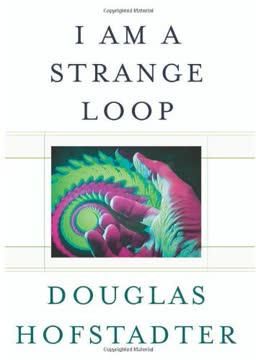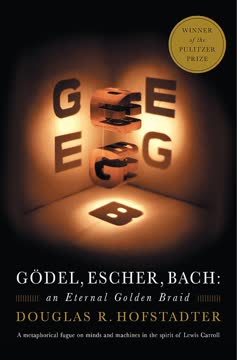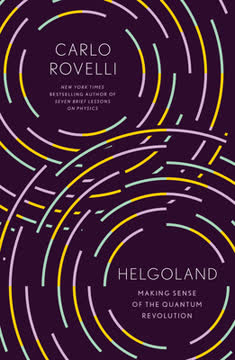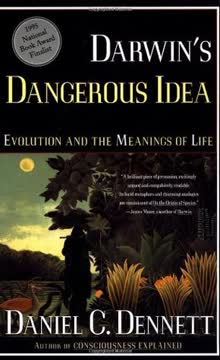重点摘要
1. 自由意志与决定论兼容,并受进化影响
我们不仅仅是聪明的野兽,在危险的世界中为自己谋生的机智代理人,也不仅仅是无意识地为了互惠利益而聚集在一起的群居动物。
进化视角。 自由意志和决定论并不互相排斥。我们的选择能力和作为道德责任主体的能力是通过数十亿年的自然选择进化而来的。这一过程塑造了我们的认知能力,包括自我反思和决策的能力。
自由度。 随着生物体变得更加复杂,它们在行为上的自由度也增加了。简单的生物选择有限,而人类则有大量的可能行动。这种行为灵活性的增加是进化过程的结果,进化过程偏爱具有更大适应性的生物。
兼容论。 作者主张一种兼容论的自由意志观,认为自由意志与决定论是兼容的。这一观点承认我们的选择受到基因、环境和过去经验的影响,但仍然认为我们在这些限制内可以是自由和负责任的主体。
2. 意识和决策是大脑中的分布式过程
你不是在循环之外;你就是循环。
分布式认知。 意识和决策并不是集中在大脑的某个区域,而是涉及多个神经网络的分布式过程。这挑战了一个集中化“自我”做出决策的观念。
决策的时间。 Benjamin Libet等人的研究表明,与决策相关的大脑活动可以在我们意识到做出选择之前被检测到。然而,这并不否定自由意志;它只是揭示了决策过程的复杂性。
意识意志的错觉。 虽然我们可能觉得我们的意识思想直接导致了我们的行动,但现实更加复杂。我们的决策是由意识和无意识过程的相互作用产生的,意识往往是我们行动的解释者,而不是唯一的原因。
3. 文化进化和模因在人类能动性中起着关键作用
文化使事情变得更容易——或者说使事情成为可能。
模因和文化传播。 人类文化,包括思想、信仰和实践,通过类似于生物进化的过程进化。模因,文化信息的单位,传播和复制,塑造了我们的认知环境。
文化支架。 我们做出决策和作为道德主体的能力受到我们继承的文化工具和概念的强烈影响。语言、社会规范和制度提供了一个框架,使更复杂的能动性成为可能。
基因与文化的共同进化。 人类的生物进化和文化进化相互影响,创造了一个独特的认知生态位。这种共同进化极大地扩展了我们的行为范围和决策能力。
4. 道德责任源于社会实践,而非形而上学事实
责备是我们为获得赞誉所付出的代价,在大多数情况下我们乐于支付。
责任的社会起源。 道德责任不是宇宙的形而上学事实,而是从我们的赞美、责备和惩罚实践中产生的社会构造。这些实践具有重要的社会功能,并塑造我们的行为。
协商的门槛。 道德责任的标准不是固定的,而是在社会中不断协商的。随着我们对人类行为和认知的理解进步,这些门槛可能会发生变化。
实用主义方法。 我们不应将道德责任建立在抽象的形而上学概念上,而应关注我们责任归属的实际后果。这种方法允许我们对能动性和罪责有更灵活和细致的理解。
5. 自我控制和承诺问题塑造了我们对自由意志的理解
假装直到你成功。
跨期选择。 我们许多最重要的决策涉及即时和未来奖励之间的权衡。我们延迟满足和做出承诺的能力对我们对自由意志和道德责任的概念至关重要。
双曲折扣。 人类倾向于以双曲线方式折扣未来的奖励,导致时间上的偏好逆转。这可能会造成内部冲突和自我控制的挑战。
自我控制策略。 我们已经开发了各种策略来克服我们对短期思维的倾向:
- 预先承诺装置
- 环境修改
- 社会支持和问责
- 心理排练和可视化
这些策略使我们能够将行动与长期目标对齐,增强我们的能动性和控制感。
6. 科学增强而非威胁我们对自由的概念
科学知识是通向可避免性的皇家大道——唯一的道路。
扩展可能性。 科学知识增加了我们对影响行为因素的理解,从而扩展了我们做出明智选择和避免不良结果的能力。
神经科学和心理学。 这些领域的进展提供了对决策过程、认知偏见和意识本质的见解。这些知识不仅没有削弱自由意志,反而使我们能够做出更好的决策并克服局限。
技术增强。 科学和技术提供了增强人类能动性的新工具:
- 认知增强剂
- 假肢装置
- 治疗干预
- 教育技术
这些进步可以增加我们的自我控制和理性决策能力,潜在地扩展人类自由的范围。
7. 人类自由的未来在于伦理和政治选择,而非形而上学
我们现在比以往任何时候都更有能力创造我们和我们的后代将要生活的条件。
转移焦点。 关于人类自由的最紧迫问题不是形而上学的,而是伦理和政治的。我们必须决定如何构建我们的社会和制度,以促进人类的繁荣和负责任的能动性。
演变的概念。 随着我们获得新知识并面临新挑战,我们对自由和责任的理解将继续演变。我们必须愿意根据科学和社会进步修订我们的概念和实践。
伦理挑战。 新兴技术和科学发现带来了新的伦理困境:
- 基因工程
- 人工智能
- 脑机接口
- 认知增强
应对这些挑战需要仔细考虑我们的价值观和我们想要创造的未来。作者认为,我们应该采用一种自然主义的、科学知情的伦理和政治方法,而不是坚持过时的形而上学自由意志观念。
人类翻译:这一改编有效地捕捉了丹尼尔·丹尼特的《自由进化》一书的关键思想。它提出了一个自然主义的、进化的关于人类自由和道德责任的解释,这与科学决定论是兼容的。改编强调了丹尼特对兼容论的论证、意识和决策的分布式性质、文化在塑造人类能动性中的作用以及对道德责任的实用主义方法。它还强调了自我控制和承诺在我们对自由意志的理解中的重要性,并认为科学知识增强而非威胁我们的自由。最后一部分强调了丹尼特的观点,即人类自由的未来取决于科学理解所引导的伦理和政治选择,而不是形而上学的推测。
最后更新日期:
FAQ
What's Freedom Evolves about?
- Exploration of Free Will: Freedom Evolves by Daniel C. Dennett delves into the concept of free will, examining it through the lenses of determinism and evolution. Dennett argues that free will is not a supernatural phenomenon but a product of evolutionary processes.
- Naturalistic Perspective: The book presents a naturalistic view, suggesting that our minds and consciousness are products of evolutionary processes. Dennett aims to dismantle the fear that determinism negates our moral agency and the significance of our choices.
- Cultural and Biological Interplay: Dennett discusses how cultural evolution and biological evolution interact to shape human behavior and moral responsibility, emphasizing that our understanding of freedom must incorporate insights from both fields.
Why should I read Freedom Evolves?
- Challenging Traditional Views: The book challenges long-held beliefs about free will and determinism, making it essential for anyone interested in philosophy, psychology, or neuroscience.
- Interdisciplinary Approach: Dennett combines philosophy, neuroscience, and evolutionary biology, making it a valuable read for those interested in how these fields intersect.
- Relevance to Modern Issues: The discussions are relevant to contemporary debates about free will, ethics, and the implications of neuroscience on our understanding of human behavior.
What are the key takeaways of Freedom Evolves?
- Freedom is Evolved: Dennett argues that freedom is not a mystical quality but an evolved trait that can be understood through science.
- Determinism vs. Free Will: The book emphasizes that determinism does not eliminate free will; rather, it redefines it, allowing for meaningful choices within a deterministic framework.
- Understanding Human Nature: Understanding our biological and evolutionary roots can enhance our appreciation of freedom and help us navigate moral and ethical dilemmas more effectively.
What are the best quotes from Freedom Evolves and what do they mean?
- "We don't have to have immaterial souls... to live up to our hopes.": This quote encapsulates Dennett's argument that free will can exist without supernatural explanations, grounding consciousness and morality in natural science.
- "The atmosphere of free will is another sort of environment.": Dennett compares free will to an evolving atmosphere, indicating that our understanding of freedom is shaped by cultural and social interactions.
- "The truth really will set you free.": This emphasizes the importance of understanding the truth about our nature and freedom, suggesting that knowledge and self-awareness empower meaningful choices.
How does Daniel C. Dennett define free will in Freedom Evolves?
- Evolved Capacity: Dennett defines free will as an evolved capacity that allows individuals to make choices based on their desires and reasoning.
- Practical Reasoning: He emphasizes the role of practical reasoning in decision-making, where individuals weigh their desires and beliefs to arrive at a choice.
- Moral Responsibility: Dennett connects free will to moral responsibility, asserting that individuals can be held accountable for their actions even if those actions are determined.
What is the relationship between determinism and free will in Freedom Evolves?
- Compatibility Argument: Dennett argues that determinism and free will are compatible, challenging the traditional view that they are mutually exclusive.
- Elbow Room: He introduces the concept of "elbow room," which refers to the space for making choices within a deterministic framework.
- Causal Chains: Dennett emphasizes that while our actions may be determined by prior events, we still have the capacity to make meaningful choices.
How does Freedom Evolves address the concept of moral responsibility?
- Moral Agency: Dennett asserts that moral responsibility is not undermined by determinism; rather, it is redefined within a deterministic framework.
- Ultimate Responsibility: He introduces the idea of "ultimate responsibility," which refers to the capacity of individuals to be the source of their actions.
- Cultural Context: The book emphasizes the role of culture and social interactions in shaping our understanding of moral responsibility.
What is the significance of the "readiness potential" in Freedom Evolves?
- Brain Activity Preceding Action: The readiness potential is a measure of brain activity that occurs before a conscious decision to act, suggesting that decisions may be initiated unconsciously.
- Implications for Free Will: This finding raises questions about the nature of free will, as it implies that our conscious awareness of decisions may come after the brain has already begun the process of action.
- Challenge to Traditional Views: Dennett uses this concept to challenge the notion that free will is purely a conscious, deliberate process.
How does Freedom Evolves redefine the concept of self?
- Self as a Process: Dennett argues that the self is not a static entity but rather a dynamic process shaped by interactions and experiences.
- Narrative Construction: The book emphasizes that individuals construct their identities through narratives and social interactions.
- Agency and Responsibility: By viewing the self as a process, Dennett suggests that individuals can take ownership of their actions while acknowledging the influences of their environment and biology.
What role does meme theory play in Freedom Evolves?
- Cultural Replicators: Dennett introduces the concept of memes as units of cultural transmission that replicate and evolve.
- Memetic Selection: The book explores how certain memes can become dominant within a culture, influencing societal norms and values.
- Impact on Morality: Dennett suggests that memes play a crucial role in the development of moral frameworks.
How does Freedom Evolves challenge traditional views on determinism?
- Determinism vs. Free Will: Dennett argues that determinism does not negate free will; rather, it provides a framework for understanding human agency.
- Complexity of Decision-Making: The book highlights the complexity of decision-making processes, emphasizing that human behavior cannot be reduced to simple cause-and-effect relationships.
- Moral Responsibility: Dennett contends that moral responsibility can coexist with determinism, as individuals can still be held accountable for their actions.
评论
《自由的进化》探讨了自由意志和决定论,主张自由意志可以在一个决定论的宇宙中存在。丹尼特认为,自由通过自然选择进化,并且与科学决定论并不矛盾。评论褒贬不一,有些人赞扬丹尼特的方法,而另一些人则认为他的写作风格具有挑战性。批评者认为他改变了关键术语的定义,并没有完全解决决定论与自由意志之间的矛盾。许多读者欣赏丹尼特发人深省的观点,但觉得这本书内容密集,有时难以理解。
Similar Books


















